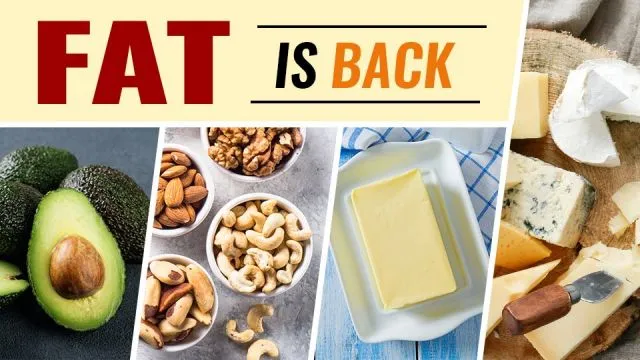
- Share on Facebook24
- Share on Pinterest
- Share on Twitter
Have you noticed the price of olive oil and avocados going up lately? What about dairy, are you paying more for your butter and cheese? It is likely that you are dishing out more of your hard earned money for these items because, after a very long time in the dark, fat is now back fashion.
The increasing demand for healthy fat is putting pressure on farmers all over the globe who are having a hard time keeping up – causing an increase in food prices.
Avocado growers, fish farmers, and butter producers are trying hard to increase production to meet the demand. However, they are up against environmental constraints that are limiting how much they can actually produce.
Fat food prices soaring upward
Since 2013, the average prices of butter, olive oil, avocados, and salmon have jumped more than 60%. In comparison, the prices of corn, sugar, wheat, and soybeans either dropped or remained consistent.
Fat is back big time! Since being shunned for over 50 years, people are once again enjoying the rich taste of foods like butter, nuts, avocados, and olives. Government agencies and nutritionists are now recommending people to avoid industrially processed fats like margarine and eat more healthy natural fat like that found in grass-fed butter.
According to Stephan Hubertus Gay, a senior agricultural analyst at the Organization for Economic Cooperation and Development, consumers are embracing foods that contain fat once again, and the rise in demand is surprisingly sharp.
But isn’t fat bad for my health?
Certain types of fat, such as trans fats, have been found to be overwhelmingly unhealthy. However, fats from whole, natural foods, such as olive oil, nuts, and avocados, nourish our bodies and don’t make us “fat.” Fats exist naturally in foods because we need them to be healthy.
Saturated fat is another type of fat that has been long demonized. However, a body of recent research has found that this type of fat also does not deserve its bad reputation. When they come from whole, natural sources, such as grass-fed meat and dairy, organic eggs, and coconut oil, saturated fats can be very healthy, indeed.
Low carb high-fat diets pushing demand
Low carb eating plans like the keto diet are driving demand for health fats off the chart. Healthy fats such as those found in oily fish and olive oil are helping people all over the world to drop pounds, balance blood sugar and improve mental clarity, to name a few things.
The American Heart Association tells us that nuts, avocados, and olive oil are rich in monosaturated fats which can lower bad cholesterol levels. Consumers are also buying up butter and all kinds of full-fat dairy products.
So-called healthy fats include omega 3 fatty acids—found in abundance in oily fish—can help lower blood pressure and reduce the risk of heart problems, according to the American Heart Association. Nuts, avocado and olive oil are rich in monounsaturated fat, which is associated with lowering bad cholesterol levels. Consumer demand is also increasing for butter and other kinds of dairy products.
According to Carlos Parra who started exporting avocados to China from his home in Mexico, three years ago, there has been a big surge in demand. Imports of the fruit by the world’s second-largest economy have doubled in recent years as more and more cafes have opened in Chinese cities.
European butter is in style
Butter consumption has increased significantly, especially European-type butter. However, manufacturers are hesitant to make enough to meet demand because they have a hard time selling the byproduct – skim milk. Therefore, since the butter shortage is pushing prices up. For instance, the price of butter From New Zealand was driven upwards by 50% between 2012 and last year.
Scottish and Norwegian salmon industry capped
Environmental concerns make increased production of fatty foods a concern, especially in the salmon industry. Both the Norwegian and Scottish governments have put a cap on the creation of salmon farms due to farming issues and sea lice, which can injure the fish population.
Bottom Line
Healthy fat is healthy, hands down. Getting plenty of it into your diet while reducing the number of carbohydrates you eat can help tremendously with balancing your blood sugar and dropping a few pounds. Just don’t expect to get your fat for cheap anytime soon!
-Susan Patterson
- Share on Facebook24
- Share on Pinterest
- Share on Twitter

